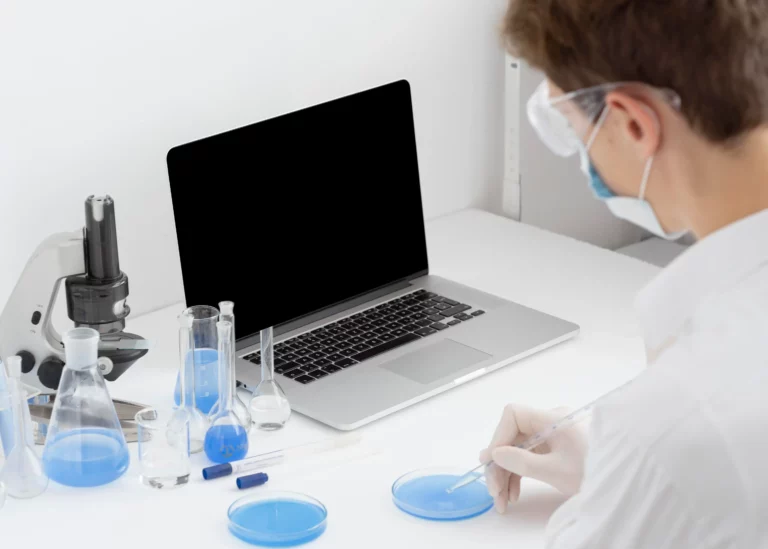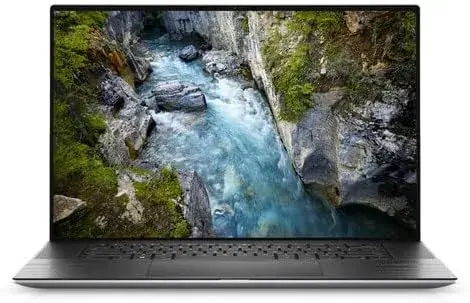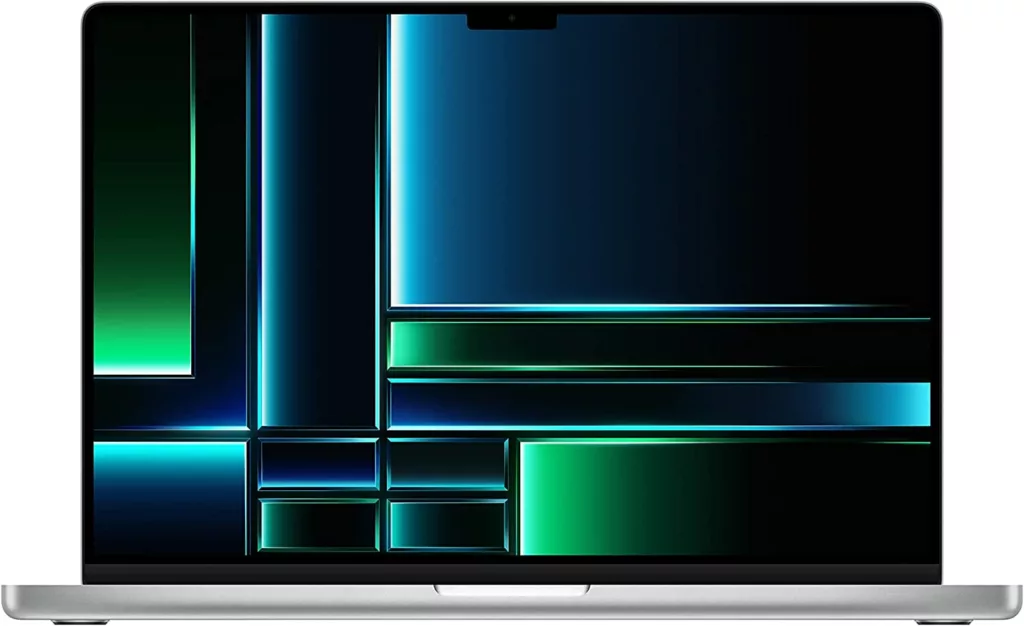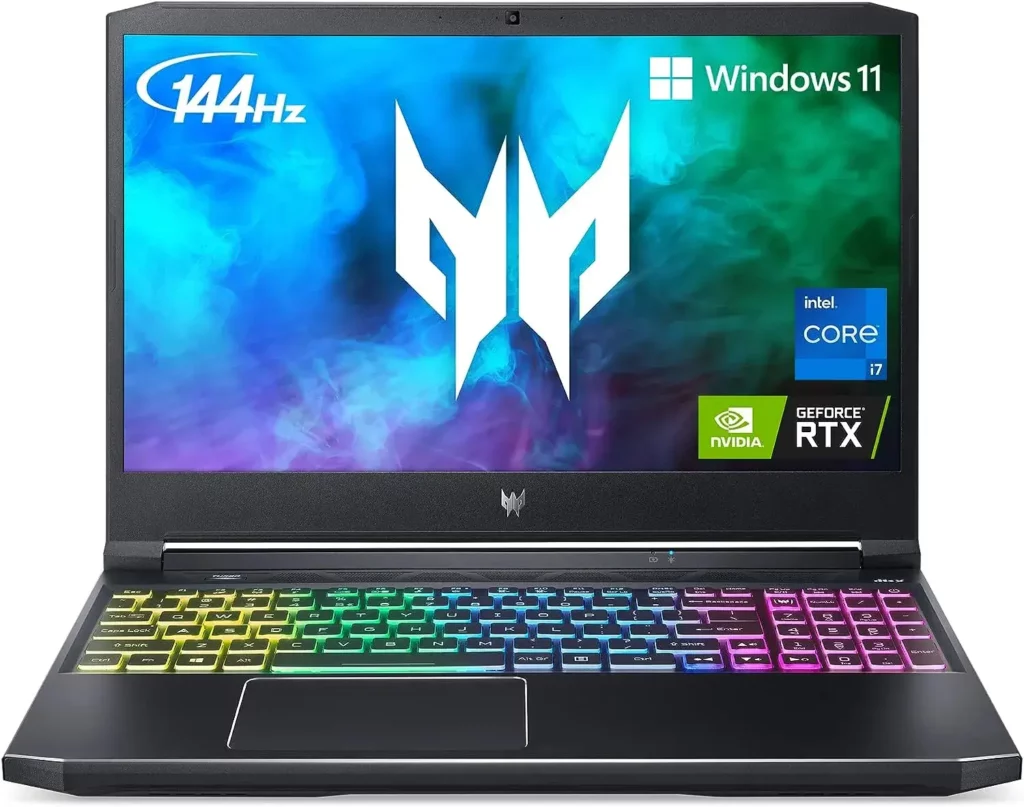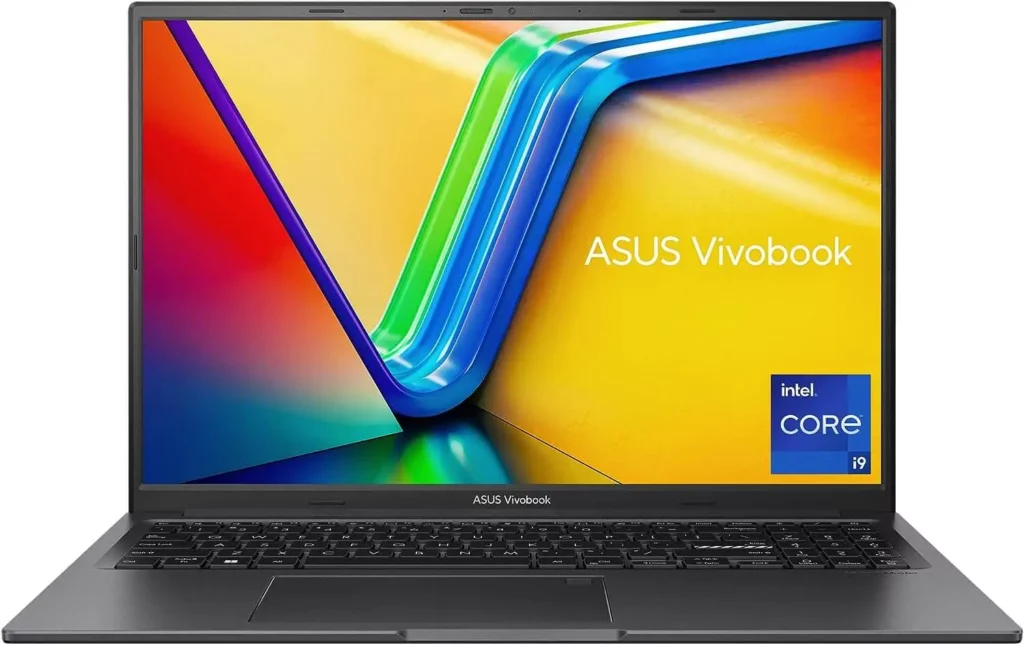Finding the Best Laptop for Biomedical Engineering Students might be difficult. You’ll need something reliable that can handle all of the various software programs you’ll be using during your education.
The 5 Best Laptops for Biomedical Engineering Students recommended in the article, not only meet the technical requirements of various software, but also provide portability, processing power, and plenty of memory for your projects. Whether you’re creating elaborate models, analyzing complex data, or conducting simulations, these laptops are built to help you in each phase of your biomedical engineering studies.
If you’re a biomedical engineering student, you’ll likely need a laptop that can handle programs like SolidWorks, AutoCAD, LabVIEW, MATLAB, and FEA software. To help make your academic journey smoother, we’ve carefully selected the top five laptops for this purpose.
Our Picks For You!
Considering the required features in a laptop for Biomedical Engineering Students we have carefully chosen the best five laptops.
- DELL Precision 5570
- Apple MacBook Pro
- Lenovo Thinkpad P16
- Acer Predator Helios 300
- ASUS Vivobook 16x
| Laptop Model | Display Size | Processor | RAM | Storage | Graphics | Battery Life | Operating System |
|---|---|---|---|---|---|---|---|
| DELL Precision 5570 | 17″ | 4.8 GHz Intel Core i7 | 32 GB DDR5 | 512 GB SSD | NVIDIA RTX A3000 12GB GDDR6 | Up to 8 hours | Windows 11 Pro |
| Apple MacBook Pro | 16.2″ | Apple M2 Pro/M2 Max | Up to 96GB of unified memory | 512GB-1TB SSD | 19-core/38-core GPU | Up to 22 hours | macOS |
| Lenovo Thinkpad P16 | 16″ | 12th Intel Core i7-12800HX | 32GB DDR5 | 1TB NVMe M.2 SSD | NVIDIA RTX A1000 4GB | Up to 8 hours | Windows 11 Pro |
| Acer Predator Helios 300 | 15.6″ | 4.6 GHz Intel Core i7-11800H | 16GB DDR4 | 512GB SSD | NVIDIA GeForce RTX 3060 | 4-5 hours | Windows 10 |
| ASUS Vivobook 16x | 16″ | 5.4 GHz Intel Core i9 | 32GB DDR4 | 1TB SSD | NVIDIA GeForce RTX 4060 | Up to 11 hours | Windows 11 Home |
Detailed Review
Highlights:
- 17-inch screen with 1920 x 1200 pixels
- 4.8 GHz Intel Core i7 processor for robust speed
- RAM with 32 GB DDR5 and 2.5 GHz caters multitasking
- Effective data processing through DDR4 SDRAM.
- 512 GB SSD for fast data access
- Detail-oriented graphics with NVIDIA RTX A3000 12GB GDDR6
- 512 GB for big storage
- Up to 8 hours of battery time for long study hours
- Windows 11 Pro for diverse software compatibility
- Bluetooth offers frictionless wireless communication
Review
The Dell Precision 5760 from the Precision 5770 series is an ideal laptop for biomedical engineering students. This laptop has an impressive 17-inch 1920 x 1200 pixel display for superb visuals. A 4.8 GHz Intel Core i7 processor powers the laptop, making it fast and responsive for demanding tasks.
This laptop is distinguished by its 32 GB DDR5 RAM which operates at a speed of 2.5 GHz. The strong RAM design supports multitasking and quick processing of complex software. The laptop has a 512 GB SSD for rapid data access and transfer. Large engineering projects, research data, and multimedia assets benefit from this feature.
Graphics performance is excellent for biomedical engineering software, simulations, and visualizations with the NVIDIA RTX A3000 12GB GDDR6 graphics coprocessor. The laptop runs Windows 11 Pro, a modern, user-friendly OS. Wireless connection via Bluetooth enables for easy device interaction. Dell’s Precision 5760 balances portability and screen size at 8.18 pounds and 22.5 x 16 x 6.1 inches. The laptop has an impressive battery time of up to 8 hours.
The Dell Precision 5760 laptop has everything a biomedical engineering student needs: powerful processing, adequate memory, affordable storage, and cutting-edge graphics. Its strong performance and smart design make it ideal for biomedical engineering research.
Highlights:
- ProMotion-enabled 16.2-inch mini-LED backlit Liquid Retina XDR display
- Apple M2 Pro or M2 Max SoC for powerful processing
- Up to 16GB – 32GB unified memory
- 512-1TB SSD for multitasking and data management
- 19-core or 38-core GPU for great graphics and video
- A Long battery life of up to 22 hours
- Thunderbolt 4, SDXC, HDMI, and headphone jacks
- MagSafe 3 for safe charging
- Wi-Fi 6E and Bluetooth 5.3 for seamless wireless connectivity
- Portability without sacrificing performance
Review
The Apple MacBook Pro with Touch ID is a great choice for biomedical engineering students. This laptop is famous for its high quality and cutting-edge technology, making it ideal for technical sectors. The MacBook Pro’s 16.2-inch mini-LED backlit Liquid Retina XDR display uses ProMotion technology for adaptable refresh rates. This display is great for circuit assembly, data analysis, and simulations because of its clarity and color fidelity.
With up to 96GB of unified memory, 1TB of storage, and the latest System on Chip (SoC) like the Apple M2 Pro or M2 Max, the MacBook Pro is lightning fast. Students can handle resource-intensive work with a 12-core CPU, 38-core GPU, and 16-core Neural Engine. The laptop can handle complex graphics and multimedia tasks with 19-core and 38-core GPUs.
Well-rounded connectivity includes three Thunderbolt 4 (USB-C) ports, an SDXC card slot, HDMI, and a 3.5 mm headphone jack. The reintroduction of MagSafe 3 ensures safe and convenient charging. WiFi 6E and Bluetooth 5.3 provide fast, reliable wireless networking for group tasks and online research. Laptop portability helps students switch between lectures, laboratories, and projects without sacrificing performance, making it the best laptop for students.
The 22-hour battery life is one of the most enticing features, ensuring efficiency all day. The Apple 2023 MacBook Pro 16-inch with Touch ID is ideal for biological engineering. Its durability, power, display, connectivity options, and portability appeal to engineers in many fields.
Highlights:
- impressive 16-inch display with 3840 x 2400 resolution
- 12th Intel Core i7-12800HX 16-Core processor with 4.80 GHz turbo boost for smooth multitasking
- Increased memory to 32GB DDR5 4800 MHz
- 1TB storage with NVMe M.2 SSD
- NVIDIA RTX A1000 4GB for smooth rendering and simulations
- Up to 8 hours of Battery life
- Intel Wi-Fi 6E AX211 802.11AX with Bluetooth 5.2 for seamless networking
- Full-size illuminated keyboard
- FHD 1080P IR Webcam with Privacy Shutter, and many connectors.
- Windows 11 Pro with dTPM 2.0 for data security.
- Compact and portable design
Review
Experience the 2023 Lenovo ThinkPad P16 G1 Mobile Workstation is the best for engineering students in 2023, designed to fulfill the needs of biomedical engineering students and professionals. The laptop has a 16-inch display with 3840 x 2400 resolution, 600 nits of brightness, Dolby Vision, and HDR 400 compatibility. Complex CAD designs, data analysis, and graphically heavy tasks benefit from this display.
A 12th-generation Intel Core i7-12800HX 16-Core processor with up to 4.80 GHz turbo boost, 32GB DDR5 4800 MHz memory, and 1TB NVMe M.2 SSD storage make this laptop efficient for multitasking and data management. For biomedical engineering simulation and visualization, the NVIDIA RTX A1000 4GB Graphics provide excellent representation.
Enhanced working efficiency with a battery time of up to 8 hours. Intel Wi-Fi 6E AX211 802.11AX and Bluetooth 5.2 ensure dependable communication. The backlit keyboard with TrackPoint and NumPad boosts functionality, while the FHD 1080P IR Webcam with Privacy Shutter secures online meetings and conferences.
The laptop’s many connectors, including Thunderbolt 4, USB 3.2 Gen 2, HDMI 2.1, and others, enable data transfer and device interaction. Portable design with 14.31 x 10.51 x 1.21 inches and 6.51 pounds.
Windows 11 Pro and a discrete Trusted Platform Module (dTPM) 2.0 protect critical data on the ThinkPad P16 G1. This laptop’s fast processor and many connectivity choices help biomedical engineering students excel through high-performance computation.
Highlights:
- 15.6-inch 1920 x 1080 screen presents a fantastic display
- Multitasking-friendly 4.6 GHz Intel Core i7-11800H processor
- 16GB DDR4 RAM at 4.6 GHz for heavy tasks
- 512GB SSD stores and accesses data quickly
- NVIDIA GeForce RTX 3060 graphics coprocessor
- 4–5 hours average battery life
- Windows 10 software compatible
- 802.11ax wireless for speed and reliability
- Easy connectivity with four USB 3.0 ports
- Sleek and compact design for portability
Review
The Acer Predator Helios 300 PH315-54-760S laptop stands out as an appealing alternative for biomedical engineering students looking for power and adaptability. Its 15.6-inch display has a vibrant 1920 x 1080 resolution, which is enhanced by the NVIDIA GeForce RTX 3060 graphics, ensuring detailed images essential for medical imaging and simulations.
The Intel Core i7-11800H processor and 16GB DDR4 RAM in the laptop give the speed and responsiveness required for operating complicated software and managing data-intensive tasks. With a 512GB SSD, importing and accessing project files is a breeze. For research and collaboration, connectivity is essential, and the laptop’s 802.11ax wireless and USB 3.0 ports provide current and fast networking options.
The 5.51-pound compact form makes it easy to move between classes and labs. While the laptop has a battery life of 4 to 5 hours on average, its powerful components make it an excellent choice for biomedical engineering students who frequently require robust computational capacity for analysis, simulations, and design work.
The Predator Helios 300 series demonstrates Acer’s commitment to excellence, and with the Windows 10 operating system, this laptop ensures interoperability with field software. The Acer Predator Helios 300 PH315-54-760S laptop presents a comprehensive solution to aid students in their academic journey in the field of biomedical engineering, where precision and efficiency are vital.
Highlights:
- 16-inch 3200 x 2000 display for enhanced visualizations
- 5.4 GHz Intel Core i9 processor
- 32GB DDR4 RAM for multitasking
- Dedicated NVIDIA GeForce RTX 4060 graphics coprocessor for medical imaging and simulations
- Large 1TB SSD storage for fast data access
- Bluetooth and 802.11ax are wireless choices
- The compact design makes it perfect for class and lab travel
- Impressive 11-hour battery life ensures productivity.
- Compatible with key biomedical engineering software on Windows 11 Home
Review
The ASUS Vivobook 16X K3605VV-ES96 laptop is one of the best laptop for biomedical engineering, it has a plethora of features that can specifically fulfill the needs of biomedical engineering students. Its 16-inch display has a 3200 x 2000 pixel resolution, ensuring clarity and precision for sophisticated medical visualizations and data processing.
This laptop’s 5.4 GHz Intel Core i9 processor and 32GB DDR4 RAM provide great performance for resource-intensive workloads. The addition of an NVIDIA GeForce RTX 4060 graphics coprocessor improves graphics processing capabilities, making it suitable for medical imaging and simulations. Storage and data access are both quick with a 1TB SSD.
The ASUS Vivobook 16X K3605VV-ES96 weighs 6.98 pounds, making it easy to tote between classrooms and labs. The laptop’s long battery life (up to 11 hours) ensures continuous productivity throughout the day. Bluetooth and 802.11ax wireless provide seamless networking.
Powered by Windows 11 Home, this laptop is well-equipped to run software utilized in biomedical engineering. Its sleek Indie Black design delivers a blend of power, versatility, and lifespan that makes it a useful asset for budding biomedical engineers.
Conclusion
Choosing a laptop is vital for biomedical engineering students. Technology is essential for academic and professional success, and each laptop on our list is innovative and powerful. These laptops fulfill biomedical engineering study requirements, from the sleek and efficient Apple MacBook Pro with its dazzling display and advanced processing power to the durable DELL Precision 5570 with its many features. The Lenovo Thinkpad P16 is stylish and pragmatic, while the Acer Predator Helios 300 is dynamic and immersive for graphics-intensive and multitasking work. The ASUS Vivobook 16x is great for mobile students due to its versatility and portability.
Ultimately, these laptops will help the next generation of biomedical engineers succeed in their education, research, and careers. These laptops may inspire students to learn, innovate, and thrive in biomedical engineering as it evolves. Choose wisely and let your laptop take you to biomedical engineering success. Also see Best Laptops for Engineering Students.
Laptop Buying Guide 2023: Best Laptop for Biomedical Engineering Students
Let’s take a look at what features Biomedical Engineering students should look for in a laptop.
An efficient laptop for biomedical engineering students should include a few key features to help them manage the field’s demanding tasks and software.
Powerful Processor: Look for a powerful processor, such as an Intel Core i7 or AMD Ryzen equivalent. For simulations and studies that require complicated data, a powerful processor ensures seamless multitasking and efficient data processing.
Ample Memory: To operate memory-intensive applications such as CAD software, MATLAB, and simulations efficiently, choose a laptop with at least 16GB of RAM.
Dedicated Graphics: For CAD and FEA software to run smoothly and accurately, a laptop with a dedicated graphics card, especially from the NVIDIA GeForce or Quadro series, is essential.
Storage Space: Select a laptop with an SSD (Solid State Drive) for fast application loading and boot times. Storage space of 512GB or more is suggested for accommodating huge datasets and software installs.
Display: For detailed designs and in-depth examination, a high-resolution display, preferably Full HD (1920×1080) or greater, gives crystal-clear visuals. An IPS panel provides better color fidelity and wider viewing angles.
Portability: Because you will be traveling between courses, labs, and study sessions, you should select a laptop that is easy to carry and achieves a mix of performance and portability.
Battery Life: Choose a laptop with a long battery life to ensure productivity all day, especially during long lectures or when working on projects away from campus.
Connectivity: A variety of USB connections, including USB-C, HDMI, and an SD card reader, provide a smooth connection to other devices and presentations.
Cooling system: Your laptop may overheat due to biomedical engineering duties. To reduce overheating during extended use, consider choosing a laptop with an excellent ventilation system.
Durability: A well-built laptop can survive the rigors of daily use and last the duration of your academic career.
OS: Opting for the correct operating system (OS) is a pivotal choice, carrying significant consequences for both individuals and organizations. If you remain uncertain about whether to go for a Mac or a PC laptop, we recommend perusing our in-depth comparison article, “Mac vs. PC – A Comprehensive Guide,” to assess their attributes and performance.
You can choose a laptop that fulfills the requirements of your biomedical engineering studies by prioritizing these aspects, allowing you to work efficiently and successfully on projects and assignments. If you want a more detailed guide, check out the Ultimate Laptop Buying Guide.

